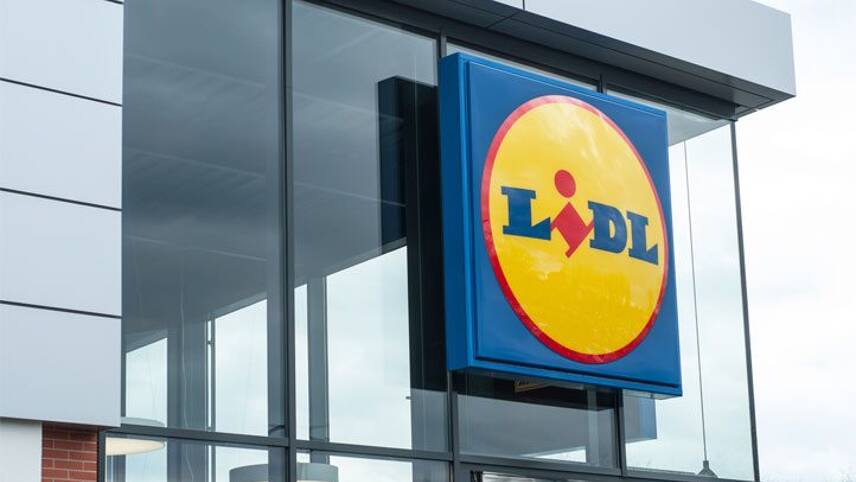Register for free and continue reading
Join our growing army of changemakers and get unlimited access to our premium content

Products with the new labels will reach Lidl's Scottish stores this autumn
The information on the labels is being calculated and presented in line with the ‘Eco-Score’ labelling system, developed by consultancy Etiquettable.
Under this system, food products are given a total score out of 100 points, as well as a colour-code and a letter grade from A to E. Total scores are calculated using a life-cycle assessment, taking into account the life-cycle carbon, resource and nature impact of the product and its packaging. Extra points can be added to scores for products that have received third-party certification under schemes such as Fairtrade or the Rainforest Alliance.
Lidl GB is trialling the label on 50 own-brand lines in the first instance, for products sold at its 105 stores in Scotland. Products set to receive the new labels include tea, coffee and hot chocolate.
During the trial, Lidl GB’s Scottish stores will host visual communications helping customers to understand the new labels. They will be encouraged to give feedback on the labelling system.
This feedback will be used by the supermarket to develop plans for progressing with the scheme. Lidl GB has also pledged to share findings with the wider food industry to help inform a broader approach.
“Rolling out the Eco-Score trial in Scotland is a huge milestone for Lidl, one we’re extremely proud of,” said Lidl GB’s head of responsible sourcing and ethical trade Amali Bunter – one of edie’s 30 Under 30 Class of 2020 members.
“We know that shoppers want more support in understanding the environmental impact of the products they buy day-to-day, and Eco-Score will do just that.”
Lidl GB is notably working towards 100% sustainability certification for all of its key raw materials for own-brand products.
Green light
Eco-labels have been something of a talking point in the sustainability space in recent months.
June saw the launch of a new labelling scheme from new non-profit Foundation Earth, developed in partnership with Oxford University. A string of big-name businesses across the UK and EU are set to trial the labels from this autumn, including Tyson, Nestle, Sainsbury’s, Costa Coffee, Marks & Spencer and VeeTee Rice. Nestle notably first revealed that it was considering adding carbon labelling to products in 2019.
Other food and drinks companies to have launched or expanded efforts to better communicate the environmental impact of products with shoppers in recent months include Upfield, which owns brands including Flora, and Quorn Foods.
As for the Eco-Score system used by Lidl GB specifically, other supporters include online restaurant and food delivery start-up FoodCheri, recipe app Frigo Magic, ready meal brand Seazon and food scanning app Yuka. All of these firms are based in France, where Eco-Score originated.
A similar system, recently launched in the UK, is Foodsteps – which is designed specifically for catering and restaurant businesses. Foodsteps has worked with the University of Cambridge and UCL to develop the world’s first database for “all food consumed in the UK” and the associated environmental impact, covering more than 1,000 ingredients. Earlier this month, Foodsteps was launched to all food businesses. It claims it is the first scheme of its kind to go beyond the pilot stage in the UK.
Sarah George


Please login or Register to leave a comment.